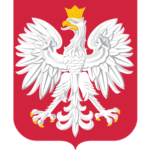Required documents
A list of all the documents candidates are required to submit is available in the IRK system. To enable the Faculty Admission Commission to evaluate you as a candidate, you have to upload scans of all the required documents to your individual account in the IRK system.
A candidate who has been accepted for a programme of his/her choice has to come to the dean’s office to register for the programme and to submit all the necessary documents. There is a specific deadline to do this, and if you fail to respect this deadline you will lose your place on the list of accepted candidates. Information on deadlines to submit the documents is available in the IRK system, in the catalogue of programmes (Information about the programme → Admission timetable → Registering for the programme and submitting the documents after the lists of accepted candidates are published). Foreigners who do not live in Poland and are not able to come to submit the documents within the specified deadline have to inform the Faculty Admission Commission about this (preferably by e-mail). In such a case, the Faculty Admission Commission may agree to prolong your deadline, by 30 September at the latest.
- A personal data form (you need to fill it in, print it from the IRK system and sign it).
- A copy of the document confirming that you have obtained secondary education, for example:
- matura certificate (including the supplement and the certificate specifying the grades, if applicable),
- IB (International Baccalaureate) diploma,
- EB (European Baccalaureate) diploma,
- secondary school-leaving certificate,
- a different document obtained abroad that entitles you to start studying at undergraduate level in the country where it was issued.
- Please note: any document issued abroad must be legalized or possess an apostille stamp, and it must be accompanied by a certified translation into Polish made by a court translator from the official list of the Polish Ministry of Justice.
- A confirmation that your certificate from abroad entitles you to apply for undergraduate programmes in the country where it was issued, if it was issued by a country that is not a member of the EU, EFTA or OECD and with which Poland does not have relevant agreements on equivalence of education certificates. If this document is made in a foreign language, it must be accompanied by a certified translation into Polish made by a court translator from the official list of the Polish Ministry of Justice.
- A document confirming your knowledge of Polish if you apply for a programme taught in Polish, or English if you apply for a programme taught in English.
- A doctor’s certificate confirming that your health enables you to start studying the programme of your choice – this applies only to those candidates who have received a document sending them to have medical exams from the IRK system. This document will only be issued to candidates who apply for programmes that may pose a risk to their health or expose them to dangerous emissions. It applies only to selected programmes (a list of such programmes).
- A document confirming that you are entitled to study free of charge – this applies only to those candidates who are entitled to study free of charge (i.e. without paying student fees for full-time programmes).
- A personal data form (you need to fill it in, print it from the IRK system and sign it).
- A BA, BSc, BEng, MA, MSc or MEng diploma, including the supplement with grades. A diploma issued abroad must be legalized or possess an apostille stamp, and it must be accompanied by a certified translation into Polish made by a court translator from the official list of the Polish Ministry of Justice.
- A confirmation that your diploma from abroad entitles you to apply for graduate programmes in the country where it was issued, if it was issued by a country that is not a member of the EU, EFTA or OECD and with which Poland does not have relevant agreements on equivalence of education certificates. If this document is made in a foreign language, it must be accompanied by a certified translation into Polish made by a court translator from the official list of the Polish Ministry of Justice.
- A certificate showing the average calculated from your grades obtained at university/college, if this average is one of the admission criteria for the programme you are applying for and it is not specified in the supplement to the diploma.
- A document confirming your knowledge of Polish if you apply for a programme taught in Polish, or English if you apply for a programme taught in English.
- A doctor’s certificate confirming that your health enables you to start studying the programme of your choice – this applies only to those candidates who have received a document sending them for medical exams from the IRK system. This document will only be issued to candidates who apply for programmes that may pose a risk to their health or expose them to dangerous emissions. It applies only to selected programmes (list of such programmes).
- A document confirming that you are entitled to study free of charge – this applies only to those candidates who are entitled to study free of charge (i.e. without paying student fees for full-time programmes).
| Apostille and legalization |
| An apostille is a stamp confirming that a document made in one country may be legally used in another country. The rules on using apostilles are included in the Convention Abolishing the Requirement of Legalization for Foreign Public Documents that was made in the Hague on 5th October 1961 (Journal of Laws 2005 No. 112 Position 938). You can only get an apostille on a document in the country where this document was issued. Here is the list of countries where you can get apostilles (parties to the Hague Convention of 1961). If a document was issued in a country that is not a party to the Hague Convention, it needs to be legalized.
Legalization is the procedure aiming at checking whether a document issued abroad is authentic and whether it has the same legal force in the Republic of Poland. Foreign secondary school-leaving certificates and university diplomas can get legalized in Polish diplomatic posts in the country where the document in question was issued. |
| Translation into Polish |
| Certified translations of documents into Polish are made by court translators from the official list of court translators of the Polish Ministry of Justice. If your document has not been translated into Polish by a court translator from this list, the translation may be certified by the Consul of the Republic of Poland in the country where the document was issued. |
| Entitlement to studying at university level |
| You have to check whether the document on the basis of which you are applying for a programme at the University of Silesia contains the information that it entitles the holder to study at university level in all types of higher education establishments in the country where it was issued.
If your certificate or diploma does not contain a statement to this effect, you need to obtain an additional document confirming that it entitles you to study in the country where it was issued. Such a confirmation may be obtained from:
|





